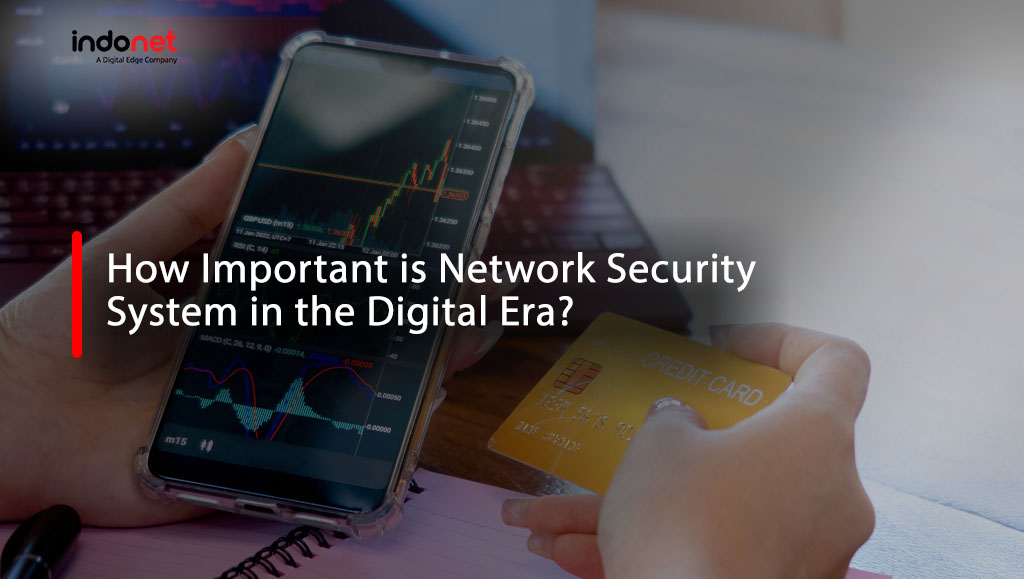Cybersecurity threats are evolving, with increasing types as technology advances. Many may still not fully grasp the importance of network security systems in the digital era. Yet, network security threats can be detrimental both personally and to businesses or organizations. Poor network security makes it easier for hackers to exploit vulnerabilities.
Types of Network Security
According to David Icove, there are four types of network security based on the security gaps in a system:
- Physical Security: Encompasses the entire system along with equipment, peripherals, and media used.
- Data and Media Security: Hackers typically exploit weaknesses in software used to process data. They may insert viruses into target computers via email attachments or messages. Additionally, hackers may install backdoors or Trojan horses on target network systems to obtain and collect important information, such as account passwords.
- External Security: Hackers may exploit the carelessness of authorized individuals, known as social engineering. Here, hackers disguise themselves as users who forget their passwords, tricking others with access rights into changing passwords.
- Operational Security: This type involves procedures to restore network security after an attack. Typically, hackers will erase logs left in the target network system, known as log cleaning, after launching an attack.
READ ALSO: Get to know SDN Security and its benefits
Why is Network Security System Important?
How critical is a network security system in the digital era? Network security safeguards the network’s integrity from access or threats. Cybersecurity network administrators are responsible for implementing various defensive measures to protect networks from potential security threats. Here are some reasons why network security systems are crucial in the digital era:
- With increasing attempts by hackers to infect devices, maintaining high data protection levels makes network security increasingly vital.
- The primary goal of network security systems is to prevent security breaches and network threats, limiting the risk of destruction and fraud.
- Today’s operations encompass not only computer operating systems but also data stored via networks. Thus, protecting company resources with reliable computer network security and wireless security is a primary consideration in cybersecurity.
- Company data is as valuable as other assets. Network security systems relate to the accuracy, confidentiality, and secure access to sensitive data.
- Every business has a responsibility to take appropriate security precautions to ensure operational safety. As technology is used for most business operations, specific security tools, policies, and techniques must be developed to ensure company network security requirements are met.
- Company compliance with WiFi security requirements protects company assets and responsibilities from various cyber threats.
- Even minor threats can disrupt organizations and data, making network security systems critical in the digital era.
Types of Network Security Protection
After understanding the importance of network security systems in the digital era, here are some types of network security protection to know:
- Network Segmentation: Successfully eliminates design flaws and complicates intruders or hackers from damaging the entire system by separating the infrastructure into limited separate parts.
- Firewalls: Work by examining inbound and outbound computer traffic for evidence of illegal behavior. If the firewall detects something suspicious, it immediately stops it from approaching its target.
- Data Loss Prevention: Aims to detect and mitigate network attacks such as theft, data leakage, and data misuse through computer security threats.
- Hyperscale Network Security: Hyperscale computing is the most efficient type of cybersecurity, such as big data analytics.
- Sandboxing: Isolates specific systems in a virtual environment. The environment simulates computers in their settings. This protection type will safeguard the system and connection if data breaches occur.
- Intrusion Detection and Prevention Systems: This protection type checks network traffic to detect potential threats and applies rules set by the administrator.
- Biometric Systems: Work by measuring biological characteristics such as facial recognition, fingerprint scanning, and retina scanning. This security system is one of the safest because biological characteristics are difficult to hack.
- Verification: When users enter the network system, user authorization is the first step in validating their information.
- Email Security: Simple email security measures like password protection and communication protection, including modern security concepts like spam blocking and fraud protection.
- Remote VPN Access: Virtual Private Network (VPN) allows remote access, encrypting all communications sent and received by users working remotely, enabling them to access and use files and data stored in company data centers securely.
Benefits of Network Security
Cybersecurity companies provide network controls, tools, and devices to assist companies or organizations in protecting vital information, organizational performance, reputation, and organizational ability to survive in business.
If there are vulnerabilities in cybersecurity, effective network security protocols are essential for the following:
- Operational Capability: Companies or organizations experiencing this type of network security attack often experience internal paralysis, unable to meet consumer needs or provide effective services. Additionally, networks play a crucial role in the company’s internal processes. When companies suffer cyber attacks, these processes may be disrupted, hindering the company’s ability to conduct business or resume operations as usual.
- Intact Reputation: Network breaches have a negative impact on a company’s reputation and may even worsen it. Given the increasing waves of identity theft and related risks associated with information theft, many customers are hesitant to share data with companies. If any type of network security breach occurs, many customers may tend to abandon services to protect their personal data.
Some things at risk in network security include:
- Damage to loss of valuable data.
- Significant disruption to customer services and internal company processes.
- Damage to reputation that may last longer after other damages are repaired.
These are some of the things to know about the importance of network security systems in the digital era. Now you can get the best network services only at indonet.co.id.

